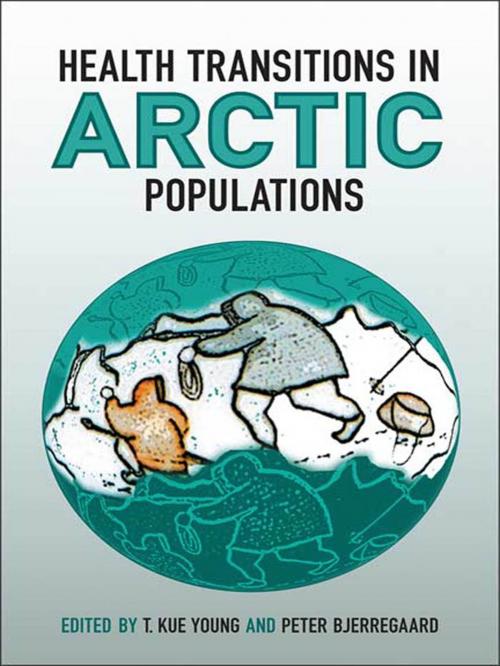Health Transitions in Arctic Populations
Nonfiction, Health & Well Being, Health, Health Care Issues| Author: | Peter Bjerregaard, T. Kue Young | ISBN: | 9781442691193 |
| Publisher: | University of Toronto Press, Scholarly Publishing Division | Publication: | June 28, 2008 |
| Imprint: | Language: | English |
| Author: | Peter Bjerregaard, T. Kue Young |
| ISBN: | 9781442691193 |
| Publisher: | University of Toronto Press, Scholarly Publishing Division |
| Publication: | June 28, 2008 |
| Imprint: | |
| Language: | English |
The Arctic regions are inhabited by diverse populations, both indigenous and non-indigenous. Health Transitions in Arctic Populations describes and explains changing health patterns in these areas, how particular patterns came about, and what can be done to improve the health of Arctic peoples.
This study correlates changes in health status with major environmental, social, economic, and political changes in the Arctic. T. Kue Young and Peter Bjerregaard seek commonalities in the experiences of different peoples while recognizing their considerable diversity. They focus on five Arctic regions – Greenland, Northern Canada, Alaska, Arctic Russia, and Northern Fennoscandia, offering a general overview of the geography, history, economy, population characteristics, health status, and health services of each. The discussion moves on to specific indigenous populations (Inuit, Dene, and Sami), major health determinants and outcomes, and, finally, an integrative examination of what can be done to improve the health of circumpolar peoples.
Health Transitions in Arctic Populations offers both an examination of key health issues in the north and a vision for the future of Arctic inhabitants.
The Arctic regions are inhabited by diverse populations, both indigenous and non-indigenous. Health Transitions in Arctic Populations describes and explains changing health patterns in these areas, how particular patterns came about, and what can be done to improve the health of Arctic peoples.
This study correlates changes in health status with major environmental, social, economic, and political changes in the Arctic. T. Kue Young and Peter Bjerregaard seek commonalities in the experiences of different peoples while recognizing their considerable diversity. They focus on five Arctic regions – Greenland, Northern Canada, Alaska, Arctic Russia, and Northern Fennoscandia, offering a general overview of the geography, history, economy, population characteristics, health status, and health services of each. The discussion moves on to specific indigenous populations (Inuit, Dene, and Sami), major health determinants and outcomes, and, finally, an integrative examination of what can be done to improve the health of circumpolar peoples.
Health Transitions in Arctic Populations offers both an examination of key health issues in the north and a vision for the future of Arctic inhabitants.















